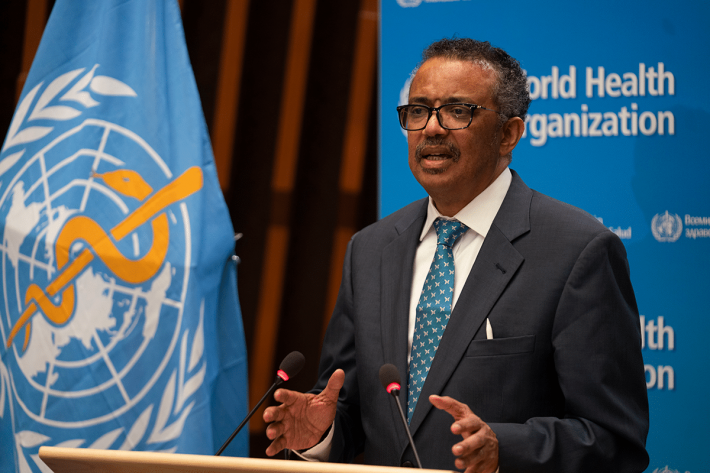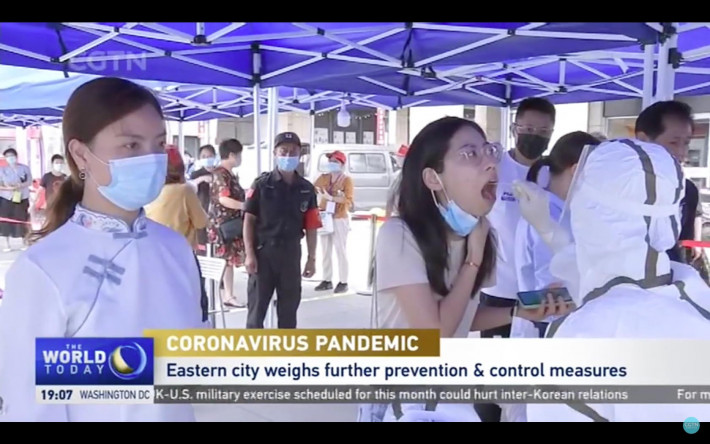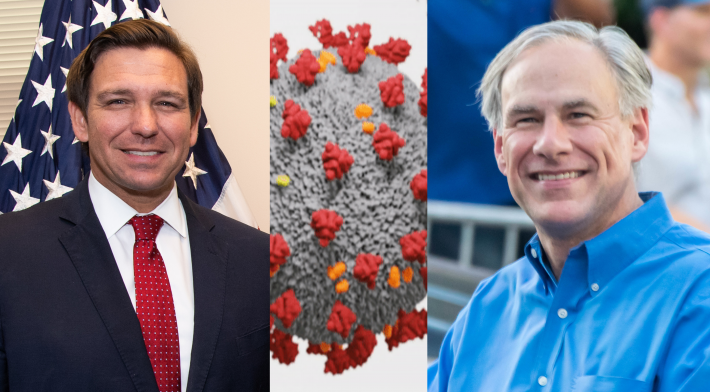Sept. 30, 2021—Today, EIR News Service posted, “The Schiller Institute Plan to Develop Haiti,” a 16-page report, which presents a comprehensive program addressing “eight fundamental areas of infrastructure, industry, and agriculture, which are at the core of the Haitian economy … present[ing] what capabilities and what problems exist, along with recommended development plan solutions.” Those areas are 1. Power and Electricity, 2. A Universal Health Care System, 3. Hunger and Agriculture, 4. Railroads and Roads, 5. Airports and Seaports, 6. Sanitation and Water Purification, 7. Industry and Labor Force, and 8. Education. The full report is available here.
The Schiller Institute Plan is clear in the mandate, and the urgent necessity of acting now, saying:
“The task of rebuilding Haiti is a daunting one because of the level of destruction deliberately imposed on it by two centuries of Malthusian policies. Every sector of its physical economy must be rebuilt from the bottom up, to uplift its impoverished population. But it’s not an impossible task if China and the U.S. collaborate along with other nations of the Caribbean Basin and Central America, as part of an expanded Belt and Road Initiative and Maritime Silk Road throughout the region.
“Haiti will have to establish diplomatic relations with China: it is still one of the few countries in the world that maintains diplomatic relations instead with Taiwan. China rightly insists that it will only work with nations that recognize the principle of One China, and Haiti would be wise to follow the path taken by its neighbor, the Dominican Republic—which recently broke with Taiwan and established ties with China—if it is to have any hope of attaining Chinese participation in its reconstruction.
“Haiti has been repeatedly subjected to an intentional depopulation policy every time a ‘natural disaster’ strikes the country. For 125 years, the looting of Haiti by the City of London, Wall Street, and other Trans-Atlantic banks (France is key among them), joined in the 20th Century by the International Monetary Fund and other multilateral lending agencies, has denied it the right to develop into a modern nation, leaving it defenseless in the face of repeated disasters, the August 14, 2021, earthquake being only the most recent one.
“The Schiller Institute program for the rebuilding and reconstruction of Haiti, the initial outlines of which are presented below, includes a unified infrastructure plan, financed by a Hamiltonian system of ample directed credit, created as a central feature of a bankruptcy reorganization of the disintegrating international financial system. The Schiller Institute has estimated preliminarily that a viable Haiti reconstruction program will cost between $175 and $200 billion, or $17.5 to $20 billion per year over ten years.”
The report also reviews the scuttled 2017 Haitian-Chinese $4.7 billion project to rebuild Haiti’s capital, in which “two Chinese companies—the Southwest Municipal Engineering and Design Research Institute of China (SMEDRIC), and the Metallurgical Corporation of China (MCC)—outlined a series of detailed projects valued at $4.7 billion to carry out the rebuilding of the capital and its environs. SMEDRIC indicated that the projects for Haiti’s capital were part of a broader, $30 billion proposal for the whole country, discussed at the May 14-15, 2017, Belt and Road Initiative summit in Beijing. A short time after that, a Chinese delegation carried out an 8-day investigative visit to Haiti and met with local officials.”
Video Preview—‘Need Creative Genius of the World To Bear on Haiti and Afghanistan’
The report was previewed on Sept. 25, on an international webinar by the Schiller Institute, with the intent of bringing together the forces to make it happen. The 2.5-hour event was titled, “Reconstructing Haiti—America’s Way Out of the ‘Global Britain’ Trap,” featuring the Schiller Institute Plan and the immediate emergency action required. The plan was summarized, and discussed by experts with ties to Haiti, in engineering, medicine, and development policy. This deliberation stands in stark contrast to the events of the past weeks, which included the U.S. forced deportation of thousands of displaced Haitians from the Texas-Mexico border, back to Haiti, to disaster conditions from the August earthquake and before. The full video of the webinar is available here.
The six panelists were Richard Freeman, co-author of “The Schiller Institute Plan To Develop Haiti”; Eric Walcott, Director of Strategic Partnerships, Institute of Caribbean Studies; Firmin Backer, head of the Haiti Renewal Alliance; Joel DeJean, engineer and Texas based LaRouche political organizer; and Walter Faggett, MD, based in Washington, D.C., where he is former Chief Medical Officer of the District of Columbia, and is currently Co-Chairman of the Health Council of D.C.’s Ward 8, and an international leader with the Committee for the Coincidence of Opposites; and moderator, Dennis Speed.
Firmin Backer pointed out that the USAID has spent $5.1 billion in Haiti over the 11 years since the 2010 earthquake, but asked, what is there to show for it? Now, with the latest earthquake on Aug. 14, we can’t even get aid into the stricken zones, because there is no airport nor port in southern Haiti to serve the stricken people. We should reassess how wrongly the U.S. funding was spent. Firmin reported how Haiti was given some debt cancellation by the IMF years back, but then disallowed from seeking foreign credit!
Eric Walcott was adamant. “We need the creative genius of the world to bear on Haiti and Afghanistan.” He said, “leverage the diaspora” to develop Haiti. There are more Haitian medics in New York and Miami than all of Haiti. He stressed that Haiti is not poor; the conditions are what is poor. But the population has pride, talent, and resourcefulness. Walcott made a special point about elections in Haiti. He said, “Elections are a process,” not an event. He has experience. From 1998 to 2000, Walcott served as the lead observer for the OAS, for elections in Haiti.
Joel DeJean, an American of Haitian lineage, was forceful about the need to aim for the highest level in that nation, for example, to leapfrog from charcoal to nuclear power. He advised, “give China the opportunity” to deploy the very latest nuclear technology in Haiti—the pebble-bed gas-cooled modular reactor. We “don’t need more nuclear submarines, we need nuclear technology!” He called for the establishment of a development bank in Haiti, and other specifics.
Dr. Faggett summed up at many points, with the widest viewpoint and encouragement of action. He served in the U.S. military’s “Caribbean Peace-Keeping Force,” and was emphatic about taking action not only in Haiti, but worldwide. He referenced President Franklin Delano Roosevelt, saying that “you can tell a lot about people, by how they take care of the health of their people.” He reported that, at present, aid workers in Haiti are having to shelter in place, because of the terrible conditions.
But, he said, we should mobilize. Have “vaccine diplomacy,” and work to build a health platform in Haiti, and a health care delivery system the world over. He is “excited about realizing Helga’s mission,” referring to Helga Zepp-LaRouche, Chairwoman of the Schiller Institute, who issued a call in June 2020, for a world health security platform. At that time, she, and Dr. Joycelyn Elders, former U.S. Surgeon General, formed the Committee for the Coincidence of Opposites.
For more information contact the Schiller Institute at contact@schillerinstitute.org

















